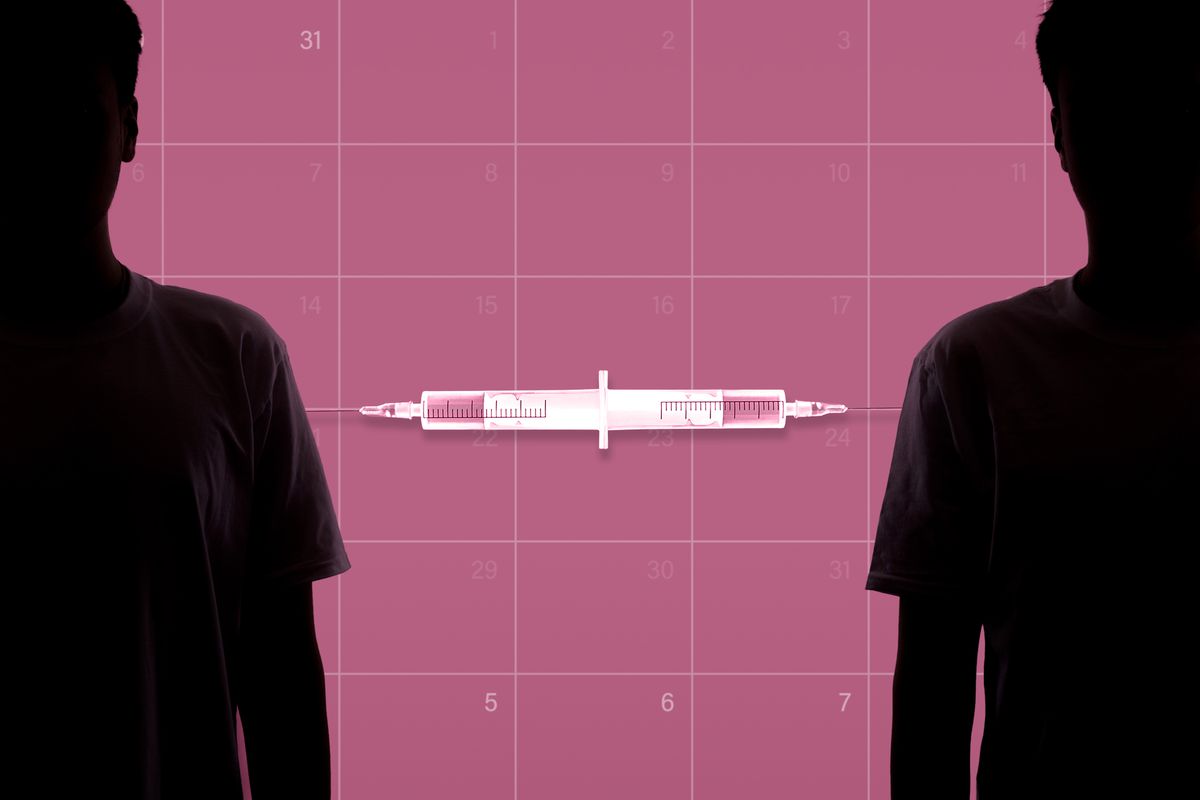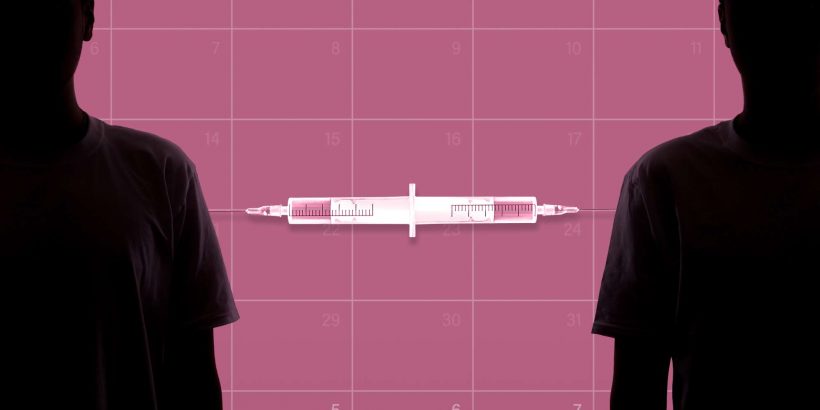

Extending the time between the first and second doses of COVID-19 vaccines may help reduce the risk of rare heart-related side effects for some, the Centers for Disease Control and Prevention (CDC) said last week.
Some people—especially young men between the ages of 12 and 39—may wait up to eight weeks between doses of the Pfizer-BioNTech and Moderna COVID-19 vaccines. This extended interval could help reduce the risk of developing myocarditis, a rare type of heart inflammation that can affect a small percentage of people who receive mRNA vaccines.
"While absolute risk remains small, the relative risk for myocarditis is higher for males ages 12-39 years," the updated guidance reads. "This risk might be reduced by extending the interval between the first and second dose."
The new recommendations come following CDC research that found the "small risk of myocarditis" linked with mRNA vaccines "might be reduced, and peak antibody responses and vaccine effectiveness may be increased with an interval longer than four weeks." However, the CDC says, going beyond eight weeks has not been shown to provide an additional benefit.
This is a change from previous CDC guidance, which was a blanket recommendation that first and second doses of the vaccine be given three to four weeks apart, depending on brand. The CDC still suggests that people who are moderately or severely immunocompromised, are older than 65, or are in need of rapid protection stick to that shortened schedule.
The new guidance mainly affects Americans who aren't fully vaccinated against COVID-19—that amounts to roughly 35% of the US population right now. About 23% have not received a first dose of any vaccine. Here's what to know about this new recommendation.
What’s the link between myocarditis and the COVID-19 vaccine?
The threat of developing myocarditis after receiving a COVID-19 shot is rare, but it does happen.
A January 2022 study published in the Journal of the American Medical Association (JAMA) found that, among nearly 200 million people who received more than 350 million vaccine doses, only 1,626 people developed clinical myocarditis—mostly young men between the ages of 12 and 24.
Another study from Israel, published in the New England Journal of Medicine, identified 54 cases of myocarditis among 2.5 million vaccinated people, with the highest incidence being among young males aged 16 to 29.
Even with the slight risk of myocarditis as a result of the COVID-19 vaccine, experts warn that the risk of developing myocarditis from having COVID-19 itself is typically higher and more severe.
"There is a fundamental difference between the myocarditis associated with the vaccine and with COVID," Thomas Russo, MD, professor and chief of infectious disease at the University at Buffalo in New York, told Health. When people develop myocarditis from the vaccine, "it tends to be milder and relatively transient," Dr. Russo said. "Myocarditis associated with COVID tends to be more severe."
Despite the slight risk of myocarditis, experts still recommend vaccination. "This is a very, very rare potential complication," Ehimare Akhabue, MD, cardiologist and assistant professor of medicine at the Rutgers Robert Wood Johnson Medical School, told Health. "If it does occur, most people respond very well to treatment and care, and recover quickly." Overall, he said the benefits of vaccination "far outweigh the potential risk."
How will waiting longer in between doses reduce the risk of myocarditis?
While data has shown that spacing out the doses can lower the risk of myocarditis, experts don't know why that's the case. "By allowing the immune system to quiet down over a period of eight weeks, it is speculated that the inflammatory response may be reduced and therefore the risk of myocarditis lessened," Jennifer Haythe, MD, an associate professor of medicine and co-director of Columbia Women's Heart Center, told Health.
"We really don't have a full explanation at this point," Dr. Akhabue said. "However, it's possible that the spacing may allow your immune system to adapt."
If you have questions about the COVID-19 vaccine and your myocarditis risk, talk to your health care professional for individualized guidance.
The information in this story is accurate as of press time. However, as the situation surrounding COVID-19 continues to evolve, it's possible that some data have changed since publication. While Health is trying to keep our stories as up-to-date as possible, we also encourage readers to stay informed on news and recommendations for their own communities by using the CDC, WHO, and their local public health department as resources.
Source: Read Full Article
